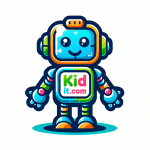Getting Started- Introducing Coding to Kids
In todays digital age, understanding technology is no longer a luxury but a necessity. As parents, educators, and mentors, it is important to equip children with the skills needed to thrive in a tech-driven world. One of the best ways to introduce kids to the world of technology is through coding.
Coding, also known as programming, is the process of creating instructions for computers to perform specific tasks. Learning to code not only teaches kids how to think logically and problem-solve but also opens up a world of possibilities in terms of future career opportunities.
Introducing coding to kids at a young age can be a fun and rewarding experience. Here are some tips on how to get started:
1. Start with the Basics
Before diving into the world of coding, it is important to start with the basics. Help kids understand the concept of coding by explaining that it is like giving instructions to a computer to perform a task. You can use everyday examples to illustrate this point, such as telling a robot to make a sandwich or a car to drive to a specific location.
2. Use Interactive Resources
There are plenty of interactive resources available online that make learning to code fun and engaging for kids. Websites like Code.org, Scratch, and Tynker offer free educational resources and games that teach kids the fundamentals of coding through interactive puzzles and challenges.
3. Encourage Creativity
Coding is not just about following instructions; it is also a creative process that allows kids to express themselves through technology. Encourage kids to experiment with different coding languages and create their own projects, whether it be a simple game, website, or app.
4. Provide Hands-On Learning Opportunities
Hands-on learning experiences are essential for helping kids grasp the concepts of coding. Consider enrolling kids in tech education programs or coding camps where they can learn from experienced teachers and collaborate with other students on coding projects.
5. Make it a Family Activity
Learning to code can be a fun family activity that brings everyone together. Consider hosting coding workshops at home where kids and parents can work on coding projects together. This not only strengthens family bonds but also creates a supportive learning environment for kids.
6. Celebrate Milestones
Learning to code can be challenging at times, so it is important to celebrate kids milestones and achievements along the way. Whether it be completing a coding project or solving a difficult puzzle, make sure to acknowledge and praise kids for their hard work and dedication.
7. Emphasize Problem-Solving Skills
One of the key benefits of learning to code is the development of problem-solving skills. Encourage kids to think critically and creatively when faced with coding challenges. Teach them that it is okay to make mistakes and that learning from them is part of the coding process.
8. Explore Different Coding Languages
There are numerous coding languages for kids to explore, each with its own unique features and capabilities. Encourage kids to experiment with different programming languages like Scratch, Python, and JavaScript to find the one that best suits their interests and abilities.
9. Encourage Collaboration
Coding is often a collaborative effort that involves working with others to solve problems and create projects. Encourage kids to collaborate with their peers on coding projects and share ideas and feedback. This helps kids develop teamwork and communication skills that are essential in the tech industry.
10. Foster a Growth Mindset
Finally, it is important to foster a growth mindset in kids when it comes to learning to code. Teach them that coding is a skill that can be developed through practice and perseverance. Encourage kids to embrace challenges and view failures as opportunities for growth and learning.
Conclusion
Introducing kids to the world of coding is a rewarding experience that not only teaches them valuable skills but also prepares them for success in the future. By starting with the basics, using interactive resources, and encouraging creativity, parents and educators can help kids develop a passion for coding that will last a lifetime.
With the right support and resources, children can learn to code in a fun and engaging way that sets them up for success in the tech-driven world of tomorrow. So, why wait? Start introducing coding to kids today and watch them unleash their creativity and potential!


leave a comment